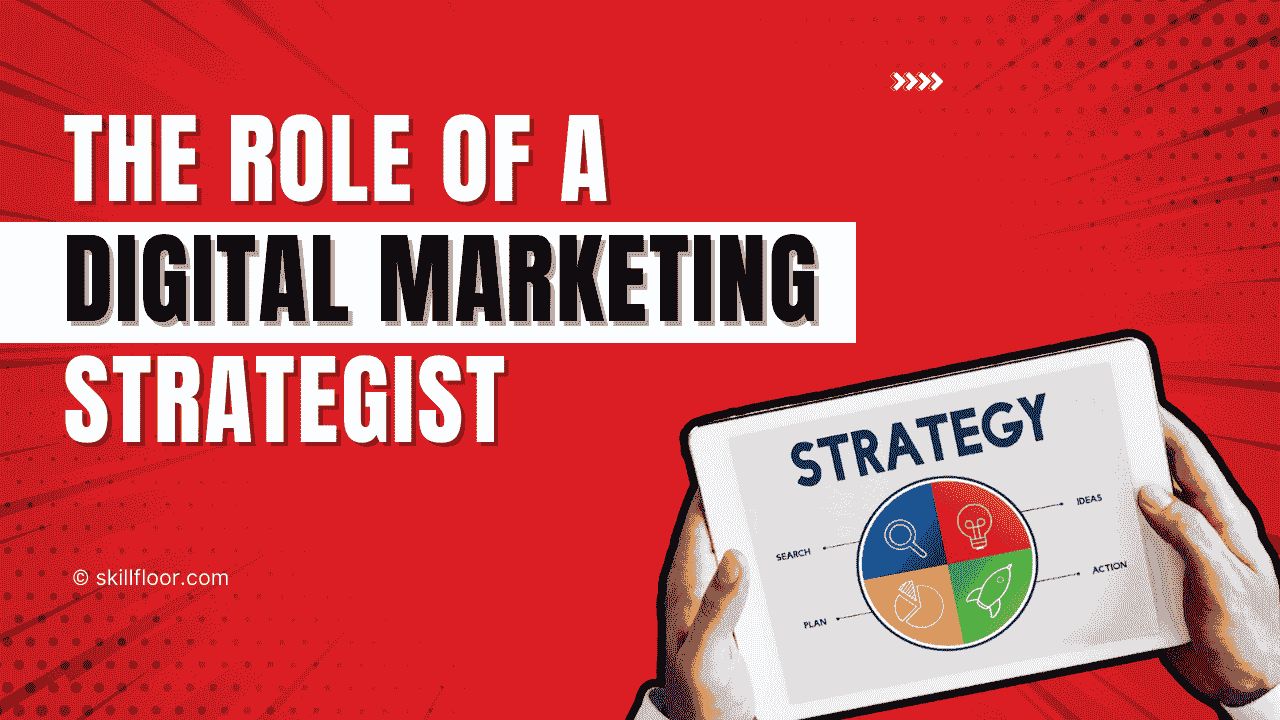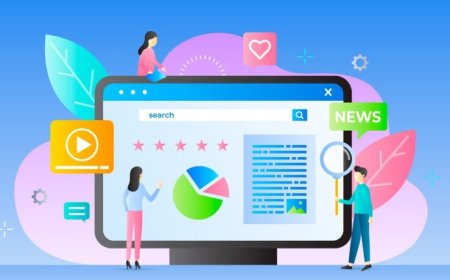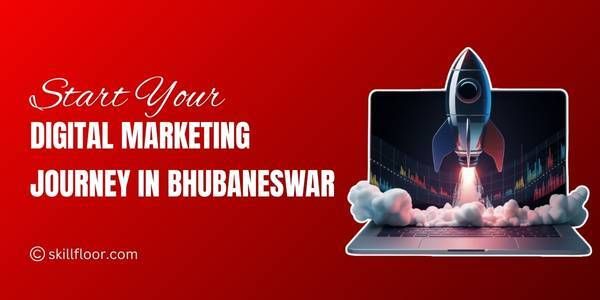The Role of a Digital Marketing Strategist
Explore the vital role of a Digital Marketing Strategist. Learn how they craft strategies, analyze data, and drive successful digital campaigns for businesses.

As a Digital Marketing Strategist, my role is all about helping brands connect with their audience online. In this digital world, people are constantly bombarded with information, so it's crucial to make sure our messages stand out and reach the right people at the right time.
Being a Digital Marketing Strategist means I get to use a variety of tools and techniques, like SEO, social media, content creation, and email marketing, to create effective and engaging campaigns. My job isn't just about promoting products or services; it's about telling a story that resonates with the audience and encourages them to engage with the brand.
I want to share my experiences and insights about what it means to be a Digital Marketing Strategist. Whether you're new to digital marketing or looking to improve your strategies, I hope to offer useful tips and perspectives to help you navigate this ever-changing field. Let's dive into the exciting world of digital marketing and explore how we can use it to grow businesses and build strong connections with our audiences.
Understanding the Core Responsibilities
At its heart, a Digital Marketing Strategist is responsible for developing, implementing, and managing marketing campaigns that promote a company's brand, products, or services. This role involves a blend of creativity, analytical thinking, and technical know-how. Here's a closer look at some of the key responsibilities:
1. Research and Analysis
Before any campaign is launched, thorough research is essential. This includes understanding the target audience, analyzing market trends, and keeping an eye on competitors. By leveraging tools like Google Analytics, social media insights, and SEO platforms, I gather data that informs every strategic decision.
2. Strategy Development
Once the research phase is complete, develop a comprehensive digital marketing strategy. This involves setting clear objectives, selecting the right channels (like social media, email marketing, SEO, and PPC), and creating a content plan that aligns with the brand’s voice and goals.
3. Content Creation and Management
Content is king in digital marketing. Work closely with content creators to ensure that all materials—blogs, videos, social media posts, and more—are engaging, relevant, and optimized for search engines. Managing the content calendar and ensuring timely publication is also part the role.
4. Campaign Execution
Implementing the strategy involves launching and managing various campaigns across different platforms. This could include running ads on Google, setting up email marketing sequences, or managing social media accounts. Each campaign is meticulously tracked to measure performance.
5. Data Analysis and Reporting
Analyzing the performance of digital campaigns is crucial. Use various analytics tools to track metrics such as click-through rates, conversion rates, and overall ROI. Regular reporting helps in understanding what works and what doesn’t, enabling continuous improvement.
Developing a Digital Marketing Strategy
-
Setting Objectives: The first step is to establish clear, measurable goals. These could range from increasing website traffic and generating leads to improving brand awareness and boosting sales. Goals should be specific, measurable, achievable, relevant, and time-bound (SMART).
-
Identifying Target Audience: Understanding the target audience is crucial. A strategist creates detailed buyer personas, which include demographics, interests, and online behavior. This helps in tailoring messages and choosing the right channels to reach the audience effectively.
-
Choosing the Right Channels: Not all digital channels are suitable for every business. The strategist selects the most appropriate platforms based on where the target audience spends their time. For instance, a fashion brand might focus on Instagram and Pinterest, while a B2B company might prioritize LinkedIn and industry blogs.
-
Content Creation: Content is the backbone of digital marketing. A strategist plans and oversees the creation of various types of content, including blog posts, videos, infographics, and social media updates. The content should be engaging, informative, and aligned with the brand’s voice and values.
-
SEO and SEM: Search engine optimization (SEO) and search engine marketing (SEM) are critical components of a digital marketing strategy. The strategist ensures that the website is optimized for search engines to improve organic rankings. They also manage pay-per-click (PPC) campaigns to drive targeted traffic to the site.
-
Social Media Management: Social media platforms are powerful tools for building relationships with customers. The strategist develops a social media plan that includes posting schedules, content themes, and engagement tactics. They monitor social media channels to respond to comments and engage with followers.
-
Email Marketing: Despite the rise of social media, email remains an effective marketing tool. The strategist designs email campaigns that nurture leads and keep existing customers engaged. This includes creating newsletters, promotional offers, and personalized content.
The Skills of a Digital Marketing Strategist

To be effective in their role, a Digital Marketing Strategist needs a diverse skill set. Key skills include:
-
Analytical Thinking: The ability to analyze data and derive actionable insights is crucial. A strategist must be comfortable with numbers and proficient in using analytics tools.
-
Creativity: Crafting engaging content and innovative campaigns requires creativity. A strategist should have a knack for storytelling and a good eye for design.
-
Communication: Strong communication skills are essential for collaborating with team members, presenting strategies to stakeholders, and engaging with the audience.
-
Technical Savvy: Familiarity with digital marketing tools and platforms is a must. This includes SEO tools, social media management software, email marketing platforms, and more.
-
Adaptability: The digital landscape is constantly evolving. A strategist must stay up-to-date with the latest trends and be willing to adapt their strategies accordingly.
Being a Digital Marketing Strategist is both challenging and fulfilling. The role requires creativity, analytical thinking, and strategic planning. By understanding the market, leveraging the right tools, and continuously optimizing efforts, a Digital Marketing Strategist can drive significant growth and success for any business.
If you're passionate about digital marketing and enjoy strategizing, this could be your perfect role. Embrace the challenge, stay curious, and keep learning—because the digital world never stands still!




























































